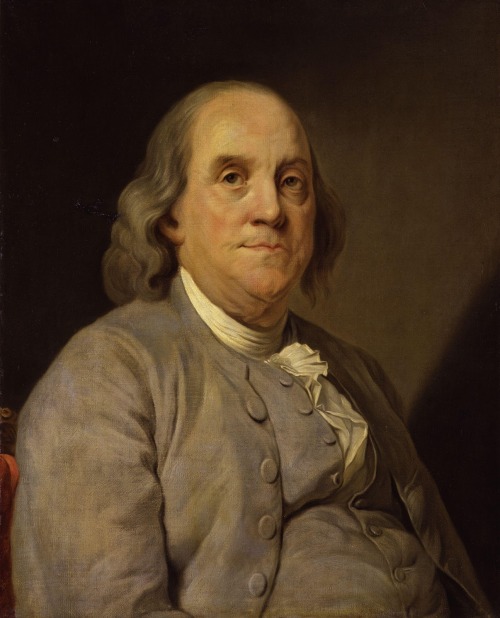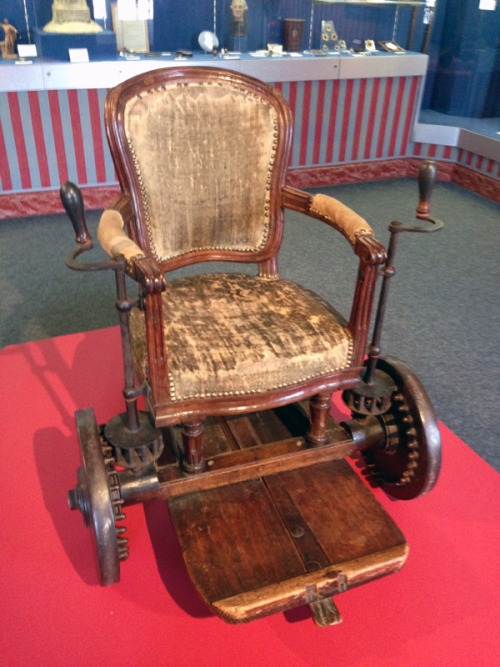peashooter85:When Ben Franklin Tried to Cure ParalysisBenjamin Franklin was a man of many talents, a
peashooter85:When Ben Franklin Tried to Cure ParalysisBenjamin Franklin was a man of many talents, a printer, writer, scientist, statesmen, musician, and ladies man to say the least. One of his lesser known studies was in medicine, a subject which Franklin was very much interested in. In the 18th century many people believed that electricity could be used to cure paralysis, as experiments had proved that electricity could cause involuntary twitching and contraction of muscles. Franklin himself was skeptical of such ideas, however because of his reputation as a scientist who experimented with electricity, many patients came to his doorstep asking if there was something he could do.Using an electric generator connected to a Leyden jar (an early type of battery), Franklin administered electric shocks to the limbs of patients who sought his help. While the treatments had some minor positive short term effects, no permanent cure was found as the patients relapsed after continued treatment. Franklin described the treatments to a friend named Sir John Pringle in a letter dated December 21st, 1757,“Some years since…a number of paralytics were brought to me from different parts of Pennsylvania and the neighboring provinces, to be electris’d, which I did for them, at their request. My method was, to place the patient first in a chair on an electric stool, and draw a number of large strong sparks from all parts of the affected limb or side. Then I fully charg’d two 6 gallon glass jars, each of which had about 3 square feet of surface coated and I sent the united shock of these thro’ the affected limb or limbs, repeating the stroke commonly three times each day.The first thing observed was an immediate greater sensible warmth in the lame limbs that receiv’d the stroke than in the others… The limbs too were found more capable of voluntary motion and seem’d to receive strength… These appearances gave great spirits to the patients, and made them hope a perfect cure; but I do not remember that I ever saw any amendment after the fifth day: Which the patients perceiving, and finding the shocks pretty severe, they became discourag’d, went home and in a short time relapsed; so that I never knew any advantage from electricity in palsies that was permanent.” -- source link

